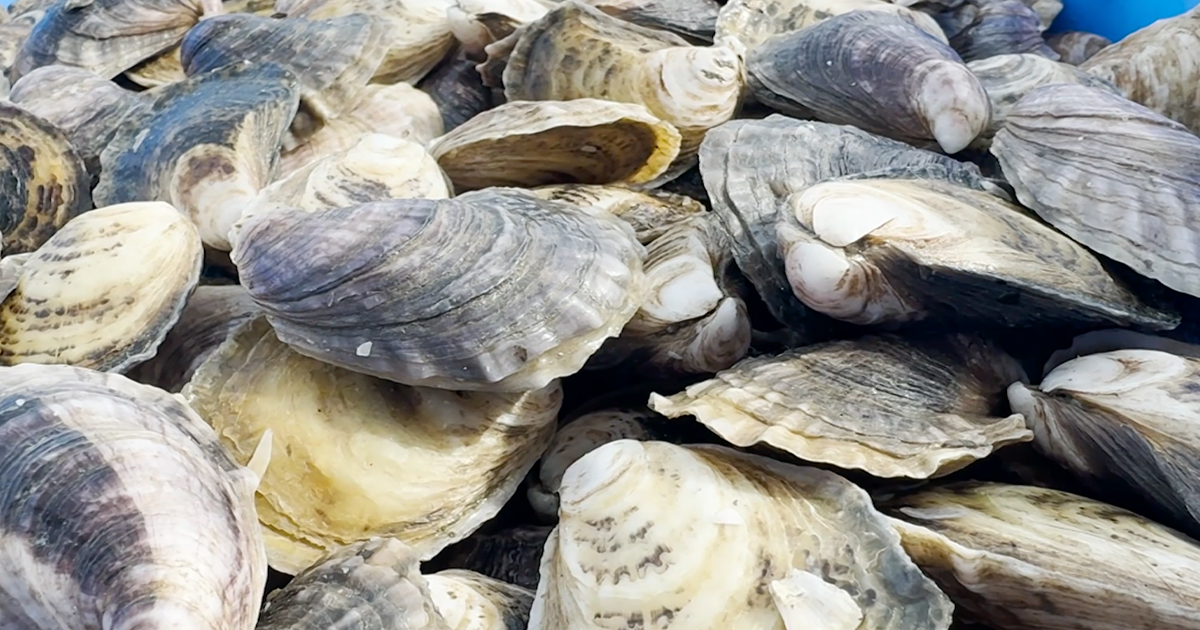Savannah, GA |
While shrimping has been a staple of the Georgia coast for more than a century, there could be a new player in town thanks to the husband-and-wife team of Laura and Perry Solomon. Coming off their first harvest season, the Tybee Oyster Company is a culmination of an idea years in the making.
“Actually, in college, we would come down here on the weekends and go harvest wild oysters. So, to us, they’re a taste of home. I mean, it never really occurred to us that people wouldn’t think the same. They’re a lot harder to get when you have to go stand in the mud and pick ax them, but they’re a taste of home for us. They’re a phenomenal oyster. So, we’re really excited to see it on a plate in restaurants,” says Laura Solomon, Tybee Oyster Company.
One of the reasons for their success is all the time and effort that goes into maintaining this floating oyster farm throughout the year. It’s a production practice that allows for more quality control without sacrificing any of the nutrition.
“Floating oyster farm just means that instead of the oysters growing wild in the banks in clumps, they’re actually floating on the surface of the water. And depending on what region you’re in, different areas do it slightly differently. But for us, they sit in that top part of the water column where all the nutrients and algae are flowing through. We have a lot of wave energy on our lease,” says Solomon.
The Tybee Oyster Company is a pioneer when it comes to promoting the oyster industry here in Georgia, as it is the first of what is likely to become many such businesses along the coast.
“2019 there was legislation passed asking the DNR to create a framework for farmed oysters. The first leases were issued in 2022 and were the first lease holders farming. And that began in 2023. So, from a regulator standpoint it’s been a of a slow road, but with the support we’re seeing, I think it’s going to kind of take-off pretty quickly,” says Solomon.
Another reason for optimism is the acclaim these oysters are already receiving from both restaurants and their customers for its unique taste that can only be achieved by growing them here on the Bull River.
“We call them salt bombs. That is an apt name. They are very briny with kind of a sweet finish in the adductor muscle, but in addition to the brininess, you can see the local spartina grass that’s everywhere. So, they do have kind of that lemongrass note you’ll pick up on. They’re definitely not as minerally as an oyster from the Northeast and it’s really cool. You talk about wine and how it tastes based on where it’s grown, oysters are very similar to that,” says Solomon.
While it’s that taste of home that initially drew the Solomons into the oyster business, it’s their drive and passion for producing locally sustainable and eco-friendly seafood that motivates them every day.
“We are into sustainability and helping to support our ecosystem for the next generations. Oysters are great food source to do that. They’re one of the greenest proteins on the planet. So, that’s one motivation. Another is we’re passionate that local food is kind of the last standing souvenir in an economy when you can buy anything from anywhere. You travel and you have local food, or you grow up in an area and have local food, it’s a lot more meaningful in this day and age. So, we wanted to get Georgia Seafood back on the menus,” says Solomon
By: Damon Jones.

